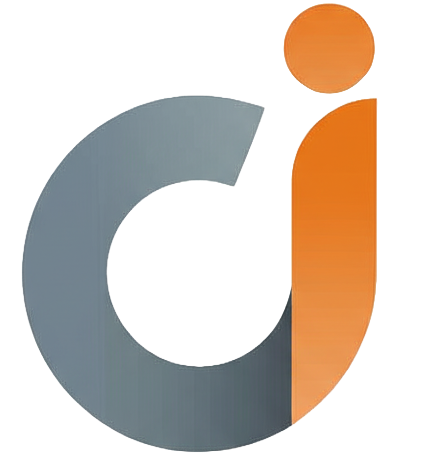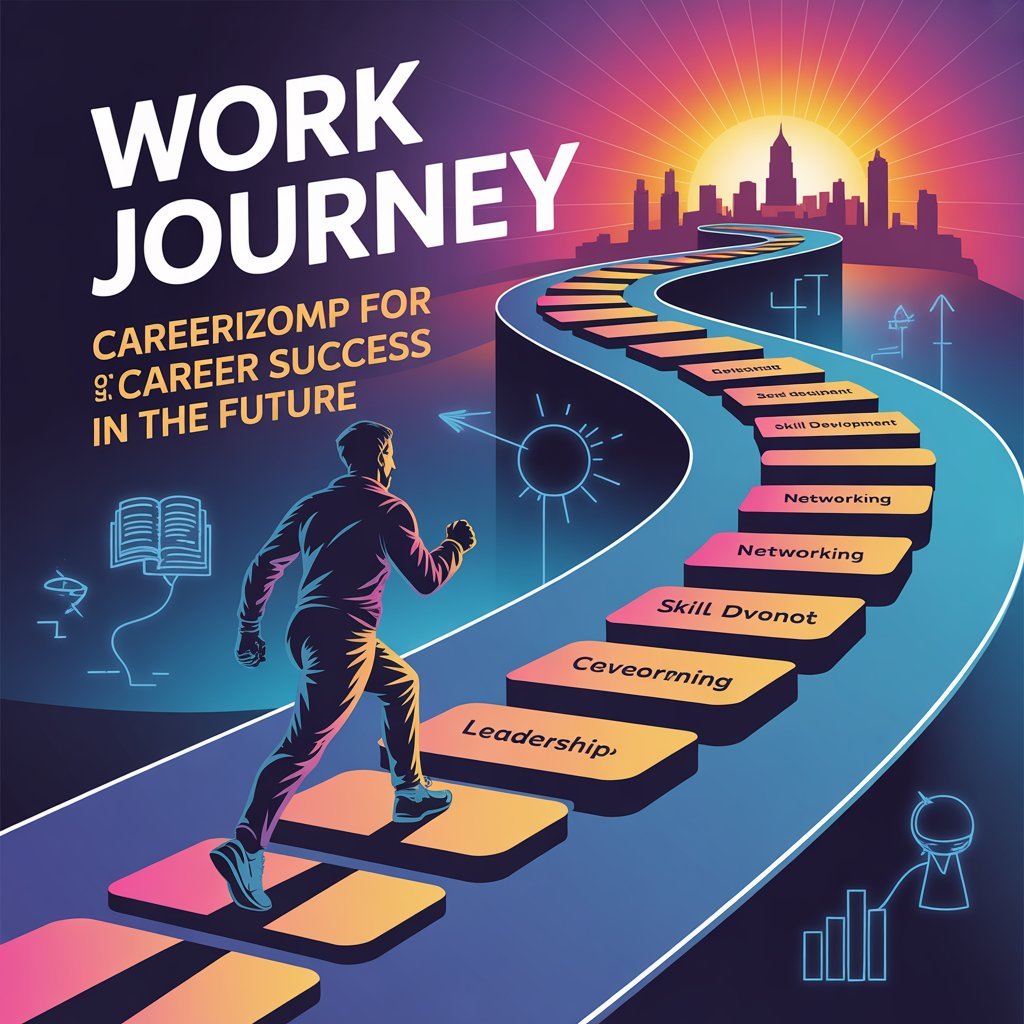Work Journey Careerizo’s Roadmap for Career Success in the Future

Have you ever wondered what your work and career will look like in ten years? Honestly , I used to think my job was pretty secure until I realized how fast things were changing around me. The future of Work isn’t some distant concept anymore ; it’s knocking on our door right now.
Let me tell you something that might surprise youm, The skills that got you your current job probably won’t be enough to keep it in five years, But here’s the good news, with the right roadmap, you can not only survive but absolutely thrive in tomorrow’s workplace
By the way, this isn’t just another career advice article filled with corporate jargon, We’re going to dive deep into practical strategies that real people are using to future proof their careers, and trust me, some of these insights might completely change how you think about work
Understanding the New Work Landscape
The workplace has transformed more in the last five years than it did in the previous fifty, Remote work went from being a nice to have perk to a fundamental expectation, Artificial intelligence shifted from science fiction to your daily reality, and suddenly everyone’s talking about skills gaps and career pivots
Let’s dive in and explore what this really means for you, Think of the current job market as a river that’s changing course, you can either learn to navigate the new waters or get swept away by the current, The companies that are thriving today aren’t necessarily the biggest ones, they’re the most adaptable

I remember talking to Sarah, a marketing manager who thought her job was bulletproof, She’d been doing the same role for eight years when suddenly her company started using AI for campaign optimization, Instead of panicking, she decided to learn how to work alongside these new tools, and guess what? She became more valuable than ever
The Essential Skills for Tomorrow’s Workforce
Digital Fluency: Your New Superpower
Here’s something that might sting a little, being “computer literate” isn’t enough anymore, Digital fluency means understanding how technology can amplify your work, not replace it, You don’t need to become a programmer, but you should know how to leverage digital tools to solve problems faster and more creatively
The professionals who are winning in today’s market aren’t necessarily the most tech savvy, They’re the ones who see technology as a collaborator rather than a competitor, Think about it like learning to drive, once you master it, the car becomes an extension of yourself

Emotional intelligence: human edge
While machines become smarter, human connection becomes more valuable, emotional intelligence is not only good for people, it is about understanding inspirations, reading between lines and building real relations between lines that generate value for all I have seen that magnificent technical people pass for promotion because they cannot communicate effectively with their teams, towards Flip
I have seen that the average artist becomes leader because they knew how to inspire and connect with others, in which category do you want to live in?
Emotional intelligence: human edge
While machines become smarter, human connection becomes more valuable, emotional intelligence is not only good for people, it is about understanding inspirations, reading between lines and building real relations between lines that generate value for all
I have seen that magnificent technical people pass for promotion because they cannot communicate effectively with their teams, towards Flip, I have seen that the average artist becomes leader because they knew how to inspire and connect with others, in which category do you want to live in?
Adaptability: Your Career Insurance Policy
Change is the only constant in today’s workplace, The professionals who thrive aren’t necessarily the smartest or most experienced, they’re the ones who can pivot quickly when circumstances shift, Think of adaptability as your career insurance policy, it protects you when unexpected changes happen
Building Your Personal Brand in the Digital Age
Building Your Personal Brand in the Digital Age

Your individual brand is not only for entrepreneurs and affected, in a world where distance work is common and changes in jobs are often, your professional reputation travels ahead of you, but here is one thing, building a personal brand does not mean to be a social media personality.
This means that consistently demonstrate your expertise, shared valuable insights, and build relationships within your industry, you have every conversation, every project you have completed, and every material you share contribute to how others experience your professional value.
Let’s be honest, it may look heavy at first. Start small, share an insight per week, comment on the discussions of the industry, or write about the challenges you solved at work, the key is stability, not perfection
Networking in the New Normal
Networking has evolved from awkward conference conversations to building genuine online relationships, The most effective networkers today aren’t the ones with the most connections, they’re the ones who provide the most value to their network
Here’s a simple framework: Give before you get, Share opportunities with others, make introductions, offer help without expecting anything in return, This approach builds stronger, more meaningful professional relationships than traditional networking ever could
Strategic career plan for indefinite times

Traditional career planning followed a linear path: education, entry level job, promotion, retirement, jungle gym than today’s career path ladder, you can move sideways, backwards, or even take a break to learn new skills
The secret to navigating this complexity is to focus on the creation of a portfolio of experiences instead of climbing a ladder, each role should add new abilities, expand your network, or deepen your expertise by ways that open future opportunities.
The Power of Continuous Learning
Here’s something that might surprise you: the half life of learned skills is shrinking rapidly In technology fields, skills become obsolete in 2 to 5 years, but even in traditional fields, continuous learning has become essential for staying relevant
But continuous learning doesn’t mean going back to school for another degree, It means staying curious, seeking out new challenges, and treating every project as a learning opportunity, The best learners I know are always asking questions and looking for ways to improve their approach

Leveraging Technology for Career Growth
Technology isn’t just changing how we work, it’s creating entirely new categories of opportunities, The professionals who understand this are positioning themselves at the intersection of human creativity and technological capability
Consider how artificial intelligence is transforming different industries, Instead of fearing replacement, smart professionals are learning to collaborate with AI to produce better results faster, They’re asking themselves: “How can I use this technology to become more valuable?”
Automation as an Opportunity
Every time a process gets automated, it frees up human capacity for higher value activities, The question isn’t whether automation will affect your industry, it’s how you’ll position yourself to benefit from it
I know an accountant who transformed her career by learning to interpret the insights that automated systems generate rather than just processing transactions, She became more strategic, more valuable, and significantly increased her earning potential
Building Resilience in Your Career

Career’s flexibility is not about avoiding challenges, it is about developing the ability to bounce stronger than failures, the most flexible professionals who know that I know some characteristics: they diversify their skills, maintain strong networks, and always have many options available.
Think about the flexibility of a career like physical fitness, you just don’t exercise when you need to be strong, you constantly create strength so that you are ready when the challenges arise. The same principle applies to your professional development
Financial Planning for Career Flexibility
Let’s talk about something most career advice ignores: money, Having financial flexibility gives you the freedom to take calculated risks, pursue learning opportunities, and say no to situations that don’t serve your long term goals
This doesn’t mean you need to become wealthy, but having an emergency fund and managing your expenses wisely creates space for strategic career moves, Sometimes the best opportunity requires a temporary step back in salary for long term gain
The Future of Remote and Hybrid Work
The epidemic not only normalized remote work, it has been proved that many jobs can be done effectively from anywhere, this innings have created both opportunities and challenges that will define the work of the next decade.
Remote work has democratized access to opportunities, but the competition has increased, you are no longer competing with local talents, but with skilled professionals around the world, the key skills of succeeding in this atmosphere are to develop the key skills that cannot be easily repeated and to build the relationships that make a permanent value.

Mastering Virtual Collaboration
Working effectively in distributed teams requires different skills than traditional office environments, You need to be more intentional about communication, more disciplined about productivity, and more creative about building relationships without physical proximity
The professionals who excel in remote environments aren’t necessarily the most introverted or tech savvy, They’re the ones who can create clarity, maintain momentum, and foster connection across digital channels, These are learnable skills that will become increasingly valuable.
Frequently Asked Questions
Q: How do I know that my skills are getting obsolete?
A: Note the job posting in your area, note what skills are being emphasized in new roles, and see how your industry is adopting new techniques, if you are looking at the requirements, then it’s time to start learning you
Q: What is the best way to infection in a new career sector?
A: Start by identifying transferable skills from your current role, then gradually build specialization in your target field through projects, volunteers, or side work, network with professionals in that field to understand real needs and opportunities
Q: How long should I spend on professional development?
A: Target for at least 5 to 10 hours per week, but remember that learning can be through your regular work. If you deliberately do about looking for challenges and reflecting your experiences, the key is stability rather than intensity.
Q: Should I focus on depth or width in my skills?
A: Both, but in a strategic way, develop deep expertise in an area that provides your basic value, then create supplement skills that increase and separate your offer, think of T-shaped instead of purely specific or generalized.
Q: How do I be inspired during a career infection?
A: Pay attention to progress rather than perfection, celebrate small victory, and connect with others who are on the same journey, remember that career infections are marathon, not sprints, and the normal parts of the setback process are
Taking action: your next step
Reading about career development is just the beginning, the actual value comes from taking continuous action towards your goals, starting by identifying a skill interval that is most important for your career trajectory, then committed to address it in the next 90 days.
Create a simple tracking system to monitor your progress, it can be basic as a weekly check-in as to what you have learned and what challenges you are facing, the key is maintaining the key even when the progress feels slow.
Do not try to change everything at once, choose an area, whether it is building your personal brand, developing a new skill, or expanding your network, and focusing on making meaningful progress there before going on the next priority.
Conclusions: Embrace your career journey
The destiny of labor isn’t always something that occurs to you, it’s far some thing which you actively form through alternatives which you make these days, every skill you have developed, every courting you create, and every mission you include make contributions to the ability and development ability of your profession.
Remember, there’s no correct roadmap that works for all and sundry, your profession journey may be precise, will be motivated with the aid of your values, occasions, and the possibilities that appear at the way, the important thing are to be curious, remain additional, and maintain transferring ahead even if the path is not absolutely clear.
By the way, fulfillment inside the future of work is not simplest about expert fulfillment, it’s far about creating a career that aligns along with your values, presents financial protection, and permits you to make meaningful contribution to the world round you.

